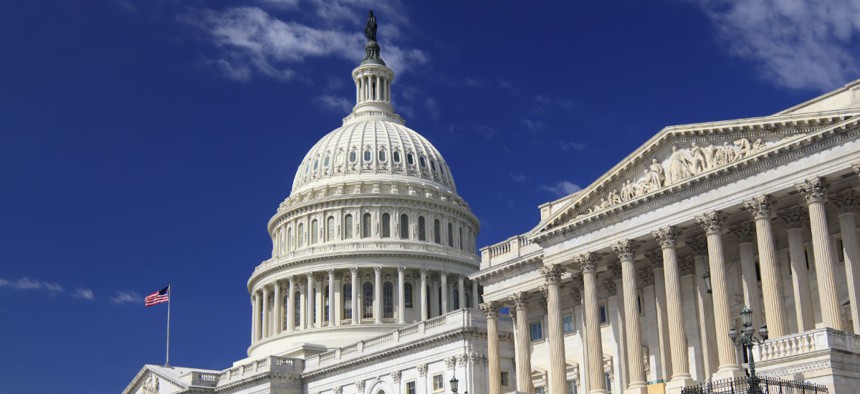House Narrowly Passes Stopgap Spending Bill, But Shutdown Threat Remains
Continuing resolution to keep agencies open through Feb. 16 will face a tougher vote in the Senate.
The House approved 230-197 on Thursday night a measure that would keep the government open for one month, although the bill’s fate in the Senate remains uncertain.
For much of the day, it was an open question whether an effort to avert a government shutdown when current funding expires Friday night would have enough votes to emerge from the House. But the House Freedom Caucus negotiated with House Speaker Paul Ryan, R-Wis., and President Trump, and provided its support for the measure in exchange for a vote on increasing military spending caps.
“[Ryan] put forth a few things for our caucus to consider that would actually be beneficial to the military and the focus on military needs going forward,” said Freedom Caucus Chairman Mark Meadows, R-N.C., before the vote. “[Our] military cannot be held hostage any longer by a Congress that continues to have 60-vote cloture rules in the Senate.”
Congress has until midnight Friday to approve a spending package, or federal agencies will shut down. The House continuing resolution would fund the government until Feb. 16, and it would provide a six-year reauthorization of the Children’s Health Insurance Program.
But Democrats opposed the measure, noting that programs like community health centers, which many CHIP enrollees use, remain unfunded, and demanded a vote on codifying protections for undocumented immigrants brought to the United States as children as outlined in the Deferred Action for Childhood Arrivals program, which is slated to expire March 5.
“We need an omnibus [spending package] that recognizes the full complement of our needs,” said House Minority Leader Nancy Pelosi, D-Calif. “This measure does not address the opioid epidemic. We need additional funding for our veterans over and above whatever it was last year . . . It doesn’t protect the Dreamers.”
Lawmakers also must reach a deal to increase spending caps laid out in the 2011 Budget Control Act, or else a sequester will take effect. The current spending limits are $549 billion for defense spending and $516 billion for non-defense agencies in fiscal 2018.
Meadows said that in exchange for the Freedom Caucus’ support for the one-month CR, the House would hold a vote on a measure to increase budget caps for defense spending, but not non-defense spending. And he received assurances that GOP leadership would bring forward a conservative immigration proposal by Rep. Bob Goodlatte, R-Va.
But those measures seem likely to solidify Democratic opposition to a spending deal, particularly in the Senate, where Republicans need votes from the minority party in order to reach the 60-vote cloture threshold. Democrats have advocated for a long-term budget deal that increases military and non-military spending caps by equal measure.
A bipartisan group of senators had reached a deal on immigration and DACA last week, but it was panned by President Trump, whose comments during a meeting on the deal dominated news coverage. On Thursday, in part citing the lack of progress on the proposal, a slew of Senate Democrats announced they would vote against the House spending bill.
And on Thursday evening, Sens. Lindsey Graham, R-S.C., who helped broker the Senate immigration agreement, and Mike Rounds, R-S.D., announced that they too would vote against the measure.
Sign up for GovExec newsletters and alerts and download our app to stay informed.








